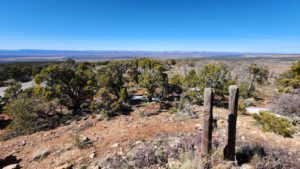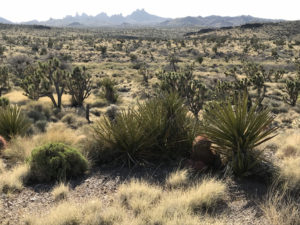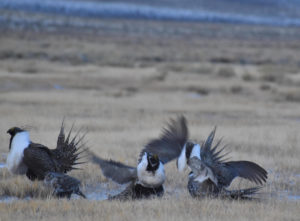Compromise wilderness deals are heralded as products of diverse groups, once hopelessly polarized and stalemated, finally sitting down to find common ground on divisive issues. Conservationist-proponents describe the unexpected joys of “working with people we’ve never worked with before and … finding shared values and frustrations.” They also take the pragmatic tack that “these (development bills) are inevitable,” so they might as well attach some wilderness to them.
The new paradigm is hailed as innovative and visionary – Steens co-sponsor Rep. Greg Walden repeatedly intoned that the Steens was “not your grandfather’s wilderness.” Yet quid pro quo wilderness rewards the West’s traditional power base by forcing wilderness to tag along with land and water development schemes.
Many fear that special exceptions in these bills are eroding the integrity of the Wilderness Act itself, by allowing uses and activities traditionally prohibited. As one wilderness defender put it, “If, for the sake of expediency, we make exceptions in wilderness bills, we make it harder to preserve the character of these wild places … Cheap wilderness is just that … easier to get and easier to lose.”
Moreover, whether actively promoting or merely acquiescing to the linking of wilderness with these projects, wilderness advocates often facilitate the bypass of environmental laws and the entrenchment of new precedents.
In the case of the land exchanges and giveaways that facilitate new wilderness, laws that would normally apply to the relinquishment of federal lands are simply waived. There was no National Environmental Policy Act (NEPA) evaluation of the ecological values traded away in the Steens; nor, in the Clark County bill, much consideration of the consequences of opening up more federal land to development in the drought-plagued Las Vegas Valley.
Laws (and lands) generally thought worth fighting for, and touted in fundraising letters and on environmental organizations’ websites, are now seemingly dispensable if wilderness can be obtained.
In the case of the Steens, where appraisals were cut short, and the Boulder-White Clouds, where land would be given outright to state and local governments, land value is disregarded, and thus federal land is treated as a cheap, disposable asset. In supporting such deals, environmentalists may unwittingly lend credence to the ravings of Sagebrush Rebels, who believe that undeveloped federal land is essentially worthless.
Perhaps the most disturbing aspect of quid pro quo wilderness is the exclusivity, even secrecy, of the process. Negotiators must keep information to themselves and keep outsiders from entering the process, since they threaten the delicate collaborative milieu. This puts conservationists in the position of perpetuating the very secrecy that has been such an issue of contention between the conservation movement and the government and industry.





